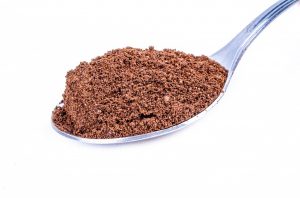It seems to be that chocolate is the latest health food, but aren’t you wondering about fat and sugar? It’s time to find out whether you should be adding it to your diet, in what ways, and what kinds, today. We need to think about whether or not we can use it, and how we can use it wisely to benefit our body.
- Have any questions?
- 480-767-9018
- support@in-goodhealth.com

9 Proven Ways Cortisol Causes Heart Disease – And The Solutions!
September 8, 2017
Free Tickets to the Bulletproof Conference
September 13, 2017
9 Proven Ways Cortisol Causes Heart Disease – And The Solutions!
September 8, 2017
Free Tickets to the Bulletproof Conference
September 13, 2017The Top Myth About Chocolate

Okay, this is a myth I heard about in the news recently and definitely want to mention before we start our discussion about chocolate. Were you ever told as a kid that chocolate milk came from brown cows, and was too afraid to question it until now?
Worry not, because this is definitely some news you can use: chocolate milk definitely does not come from brown cows1.
Now that we have had a little bit of fun, let’s dive into the world of chocolate and what it can mean for our bodies…
Chocolate: the new health food?
Up until about a decade ago, we never really thought of chocolate as a health food. That all changed when a large Harvard study was done on the effects of eating it2.
It included over 55,000 men and women, and was performed over the course of 13 years. Overall, this study really brought chocolate onto the health food scene, as something you might want to bring more of into your diet.
How did the study work?
The study took people and split them into defined categories, based on how much chocolate that they were likely to consume. These were:
- Non-users
- Low users
- Moderate users
It tracked these people, and sought to understand any changes in overall mortality risk and brain aging. What they saw was that the low users had fewer problems. As they aged, when compared with the non-users. The moderate users, however, did not reap the same kind of benefits that the low users did.
Key Insight: More and more is not always better. During this study, even the moderate users were not asked to consume that much. The overall amounts remained pretty small.
What have we learned about chocolate?
Since this study was performed, we have learned a lot of interesting things about chocolate and how it can contribute to our health. Let’s dive a little bit into these results, and what they mean for our health.
Polyphenols
What we have learned about chocolate is that it can be a source of some really good polyphenols. Polyphenols are plant-based, antioxidant compounds that can be great for us.
Diabetes Risk and Cardiovascular Disease
There have been some large human outcome studies which suggest that chocolate can help with reducing the risk of diabetes. As well as the prevention of cardiovascular disease4.
Cardiovascular Effects
In vivo, which are test tube-based, studies have shown that chocolate may perform well in relation to4:
- Blood pressure
- Platelet aggregation
- Endothelial function
What’s the risk?
While we have seen some good from chocolate, we do need to understand that there are some definite drawbacks. One of the major ones is that the majority of chocolate that we encounter in our day-to-day lives contains heavy, processed, non-whole food fats, as well as lots of sugars.
Key Insight: The problem is that these adjoining factors that comprise “mainstream chocolate” play a large role in negating the health benefits that we have already mentioned.
The other thing we need to think about, is that chocolate might act as a trigger for migraines and headaches. It has been reported that the frequency of migraine episodes attributable to chocolate can range between 0 to 22.5%5.
The interesting wrinkle here is that the studies which have involved “regular chocolate” and “placebo chocolate” have the same rate for triggering headaches. This might mean that the effect it has on headaches is not rooted in science. But, is more of an expectation than actual causality.
One of the studies even mentioned that the risk of having a migraine after ingesting chocolate was found to be even less likely than those same symptoms based on exposure to:
- Stress
- Fasting
- Lack of sleep
- Alcoholic beverages
Bottom Line: If chocolate has been a trigger for you at some point in your life, do not let these studies cast doubt on what has not worked for you – pushing your luck is definitely not the right choice. If you are debating it, though, statistics would show that you do not have much to worry about.
Understanding Polyphenols
Remember when I mentioned earlier that the polyphenols contained in chocolate could be really beneficial to your health? Let’s dive a little bit more into what those mean, so that we can further our understanding about the health benefits of chocolate.
Key Insight: Polyphenols are largely known for playing a role in the reduction of risk for diabetes6.
Chocolate and Body Weight
There has been some contradictory evidence here, with regards to the role it plays in the management of body weight. It is thought that the flavonoids in chocolate could improve satiety, how full you feel, and help gene expression7.
Overall, though, we have not seen that in most studies. This is probably due to what chocolate is paired with, rather than what chocolate is on its own.
Due to being calorie dense, with empty-calorie fats and sugars, it is hard to know the real effect that chocolate in its purest state can have on body weight.
Chocolate As A Stimulant
What about the stimulant side effects? While there might not be a lot of caffeine in chocolate, it has less than coffee or tea, there are some theobromines in chocolate. For those of us who are crazy sensitive to stimulants, this can be a recipe for chaos.
Bottom Line: As far as a stimulant is concerned, those who are not very sensitive would probably do better with chocolate than they would with coffee and tea.
Chocolate and the Brain
How could chocolate affect your brain? In theory, the flavonoids in chocolate could help mood and age related cognitive decline. At the moment, this is limited to only animal studies – we have not yet seen any studies which explore the human outcomes of chocolate and cognitive health8.


It is also plausible that foods which are high in phenylalanines could also raise the risk of Parkinson’s disease. These would include:
- Cocoa, and
- Wine
Again, these results have also been reserved for animal studies9. This means that while the results are currently mixed, they are also far from proven either way.
What about chocolate cravings?
What we do know about people who have strong chocolate cravings, is that they often have other health problems10. By no means is this correlation, but they seem to represent a pattern. Those who have strong chocolate cravings have also been shown to be suffering from:
- Depression
- Anxiety
- Obesity
- Substance abuse issues
Bottom Line: Having chocolate cravings will not give you depression, it is definitely not that simple. What we can ascertain from this information is that those who are afflicted with these issues, they are also those who exhibit strong chocolate cravings.
Chocolate: Results and Action Steps

The highest level research has shown that chocolate does help most people. There are considerations to make, like understanding how stimulant-sensitive you might be, but the research is positive that chocolate can benefit our lives. So, what can you do with it?
Key Insight: Unfortunately, I have never seen any chocolate bars that are not loaded with a bunch of empty calories or a great deal of sugar – or both! For this reason, I would advise you against looking to get your fill of chocolate from chocolate bars that you might see as you are waiting to check out.
Cocoa powder might just be the best way to get more chocolate into your diet. Cocoa itself comes from a bean that contains a great deal of oil, which is naturally occurring, and which helps the fat-solubility of the antioxidants in the polyphenols.
So, you are still getting the polyphenols you need without having to add a whole bunch of fat to make it soluble.
For those who tolerate it well, cocoa powder can be a great thing to add into:
- Shakes
- Hot cereals
- Sauces (like Mexican mole sauces)
My other favorite version of chocolate has to be raw cacao nibs. These can be tasty little additions to:
- Stir Frys
- Shakes
- Baked goods
Key Insight: If you are using raw cacao nibs for shakes, put them in at the end of your blending – and make sure to avoid vaporizing them. It will add a nice little crunch to your next shake, and you will be able to enjoy the benefits of chocolate while you are at it.
Raw cacao nibs have the added benefit of having a bit of bitter taste to them, which can aid in liver function and the secretion of stomach acids (for digestive purposes)11.
If it is just the polyphenols that you are after, there are also other sources that you might like to consider12. Chocolate is not your only option, as you can also find polyphenols in:
- Cloves
- Star anise
- Oregano
- Flaxseed meal
- Rosemary
- Blueberry
- Capers
- Black olives
- Plums
- Basil
- Strawberry
- Ginger
- Almonds
- Tempeh
- Rye flour
- Shallots
Bottom Line: Polyphenols can be found in lots of foods, so chocolate is not your only option. This helps if you feel like chocolate might just not be for you, or if you are having trouble working it into your diet.

Reasons to avoid chocolate?
If you feel like chocolate gives you headaches, I would definitely recommend steering clear. At the same time, you might really want to consider whether or not this is the case.
As we mentioned before, studies have suggested that the link between chocolate and migraines might be more in your head than you think. If it is not completely obvious, you might want to reconsider whether or not chocolate is the culprit behind your pounding headache.
At the same time, a good reason to avoid chocolate is if you are one of the world’s worst caffeine metabolizers. I firmly put myself in this camp, so make sure you know how your body deals with caffeine before getting more chocolate into your system.
Bottom Line: If you cannot stomach chocolate, but still crave the taste, consider going with carob the next time you are cooking. Carob powder has some of that delicious taste, without the potential drawbacks that you might be concerned about.
Why go with chocolate?

If you want to bring more chocolate into your diet, the benefits are pretty clear. Not only is the taste good, but you have the opportunity to mitigate the risks of cardiovascular disease and negative glucose regulation.
For those who are not caffeine sensitive, the choice is clear. Adding chocolate or cocoa powder into your diet definitely has its benefits, and adding some today can start doing your body some real good.
Take Great Care of Yourself Today
As we know, plants are complex, and so is our health. Now that you have the full scoop on the role chocolate can play in our bodies, isn’t it about time we did some more learning?
Take the Thyroid Quiz (Click Here), and learn a little bit more about your body and how you can start doing the right thing by it today.
1 – https://www.chicagotribune.com/business/ct-american-adults-chocolate-milk-brown-cows-20170616-story.html
2 – https://www.hsph.harvard.edu/news/press-releases/chocolate-irregular-heartbeat/
3 – https://www.ncbi.nlm.nih.gov/pubmed/22301923
4 – https://www.ncbi.nlm.nih.gov/pubmed/26026398
5 – https://www.ncbi.nlm.nih.gov/pubmed/25567457
6 – https://jdmdonline.biomedcentral.com/articles/10.1186/2251-6581-12-43
7 – https://www.ncbi.nlm.nih.gov/pubmed/24000103
8 – https://www.ncbi.nlm.nih.gov/pubmed/23810791
9 – https://www.ncbi.nlm.nih.gov/pubmed/23575894
10 – https://www.ncbi.nlm.nih.gov/pubmed/23534597
11 – https://www.ncbi.nlm.nih.gov/pmc/articles/PMC3575938/
12 – https://www.nature.com/ejcn/journal/v64/n3s/fig_tab/ejcn2010221t1.html?foxtrotcallback=true

P.S. Whenever you are ready, here is how I can help you now:
- Schedule a Thyroid Second Opinion with me, Dr. C, Click Here for Details
- Need help to choose supplements? Click ‘Help Me Decide Here'
- Get my top books Here
Dr. Alan Glen Christianson (Dr. C) is a Naturopathic Endocrinologist and the author of The NY Times bestselling Hormone Healing Cookbook, The Metabolism Reset Diet, and The Thyroid Reset Diet.
Dr. C’s gift for figuring out what works has helped hundreds of thousands reverse thyroid disease, heal their adrenals, and lose weight naturally. Learn more about the surprising story that started his quest.








